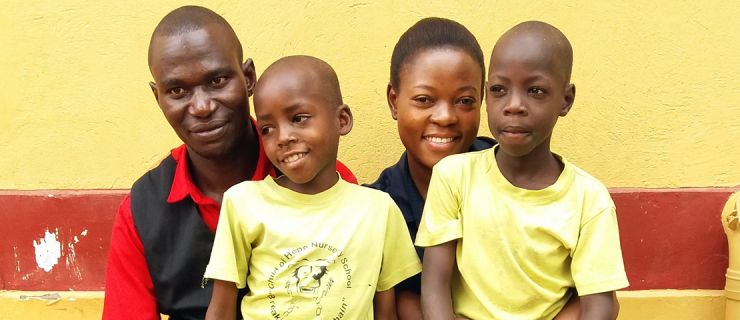
Our initiative to arrange fostering for orphans and other vulnerable children was born when our respite accommodation became far too overcrowded and we realised it’s not suitable for all children. The new fostering programme not only relieves pressure but also offers a better environment for some of the children who couldn't live with their own immediate or extended families.
In this slum, a lot of children are unable to live in a happy and loving environment with their biological parents. Some are orphans, some lose their parents through sickness or abandonment, and some are abused at home.
It’s been hard work! After a lot of time and energy, we have only recruited eight families, which has enabled 13 children to move out of the children’s home and into a family setting. Despite slow progress we are committed to seeing more of the children in our children’s home find suitable foster families because – along with the Ugandan Government – we believe this is the best way for these children to grow and flourish.
In Uganda the Government has produced a framework called ‘Alternative Care’ which gives guidance on how best to look after orphaned and vulnerable children. If it is not possible for the child to live with their biological parents then it states that ‘kinship care’ is next best, ie staying with biological relatives (aunts and uncles, grandparents, etc). If this is not possible, then the next best solution is fostering, hopefully eventually leading to adoption within Uganda. The last option is staying in a children’s home. This system seems very good to us but sadly there is no official fostering service in Uganda!
This has not deterred us though! Our Family Support team have worked very hard to find suitable local families who would be willing to take children into their homes. Although Ugandan families are used to accommodating children who are from their wider family, taking in children who are not related to them is very rare. Therefore plenty of counselling and explanation has been undertaken with prospective families and children, as well as inspection of homes.
Anyway, we are continuing to work to encourage more members of the community to become foster parents and to raise money to pay families who are currently fostering to cover the extra costs involved in taking in an extra child. So far, being fostered has made a real difference to the children who have all responded well: they each have a brighter future now and are happier, showing improved health and motivation in studying at school.
